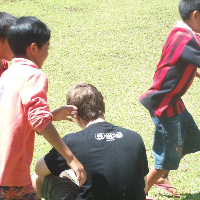I'm programming a 2-player game where a pikachu and a charmander shoot little fireballs and thunder waves at each other. For the shooting, I am using the for the thunder waves, and for the fire balls. However, only the thunder waves work. Is this because Greenfoot only allows for one if ("v".equals(Greenfoot.getKey())) code?
if ("shift".equals(Greenfoot.getKey()))if ("v".equals(Greenfoot.getKey()))






